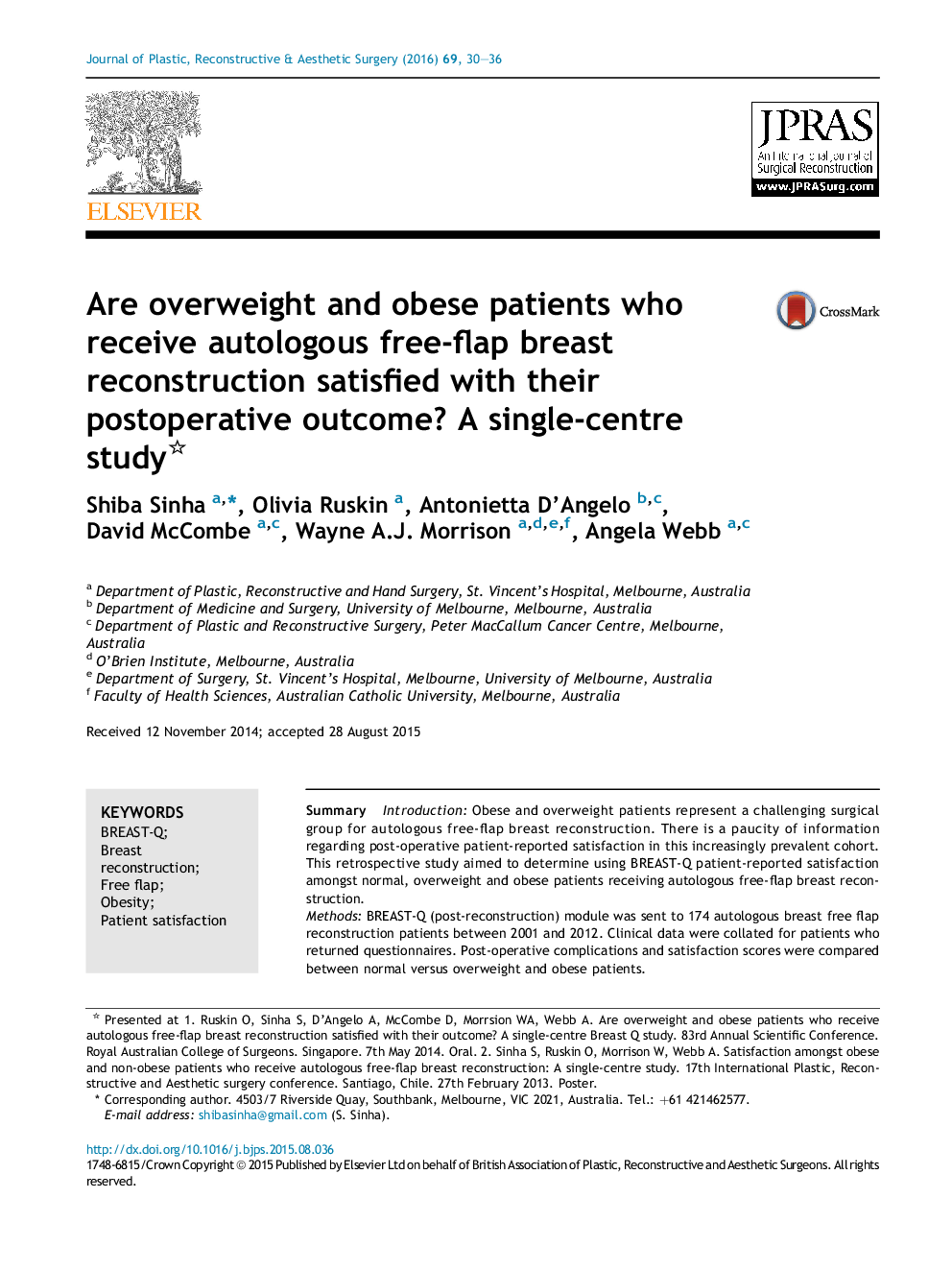| کد مقاله | کد نشریه | سال انتشار | مقاله انگلیسی | نسخه تمام متن |
|---|---|---|---|---|
| 4116972 | 1270289 | 2016 | 7 صفحه PDF | دانلود رایگان |
SummaryIntroductionObese and overweight patients represent a challenging surgical group for autologous free-flap breast reconstruction. There is a paucity of information regarding post-operative patient-reported satisfaction in this increasingly prevalent cohort. This retrospective study aimed to determine using BREAST-Q patient-reported satisfaction amongst normal, overweight and obese patients receiving autologous free-flap breast reconstruction.MethodsBREAST-Q (post-reconstruction) module was sent to 174 autologous breast free flap reconstruction patients between 2001 and 2012. Clinical data were collated for patients who returned questionnaires. Post-operative complications and satisfaction scores were compared between normal versus overweight and obese patients.ResultsA total of 101 patients (normal body mass index (BMI) = 27; overweight BMI = 48 and obese BMI = 25) completed BREAST-Q (response rate 66%). Obese and overweight patients are significantly more likely to develop major (44.8% and 31.1% vs. 29.6%) and minor (34.4% and 20% vs. 7.4%) complications in comparison to normal BMI patients (p < 0.02). Overweight and obese patients demonstrated similar levels of satisfaction compared with normal patients with the shape of their reconstructed breasts (73.2 and 72.1 vs. 71.2; p > 0.05) and overall surgical outcome (75.8 and 78.9 vs. 75.4; p > 0.05).ConclusionsPatient post-operative satisfaction is gaining increasing relevance in assessing the outcomes from autologous breast reconstruction. Overweight and obese women benefit from autologous breast reconstruction, despite being at increased risk of post-operative complications, and eventually achieve comparable levels of post-operative satisfaction. This should be reflected in pre-operative counselling.
Journal: Journal of Plastic, Reconstructive & Aesthetic Surgery - Volume 69, Issue 1, January 2016, Pages 30–36
